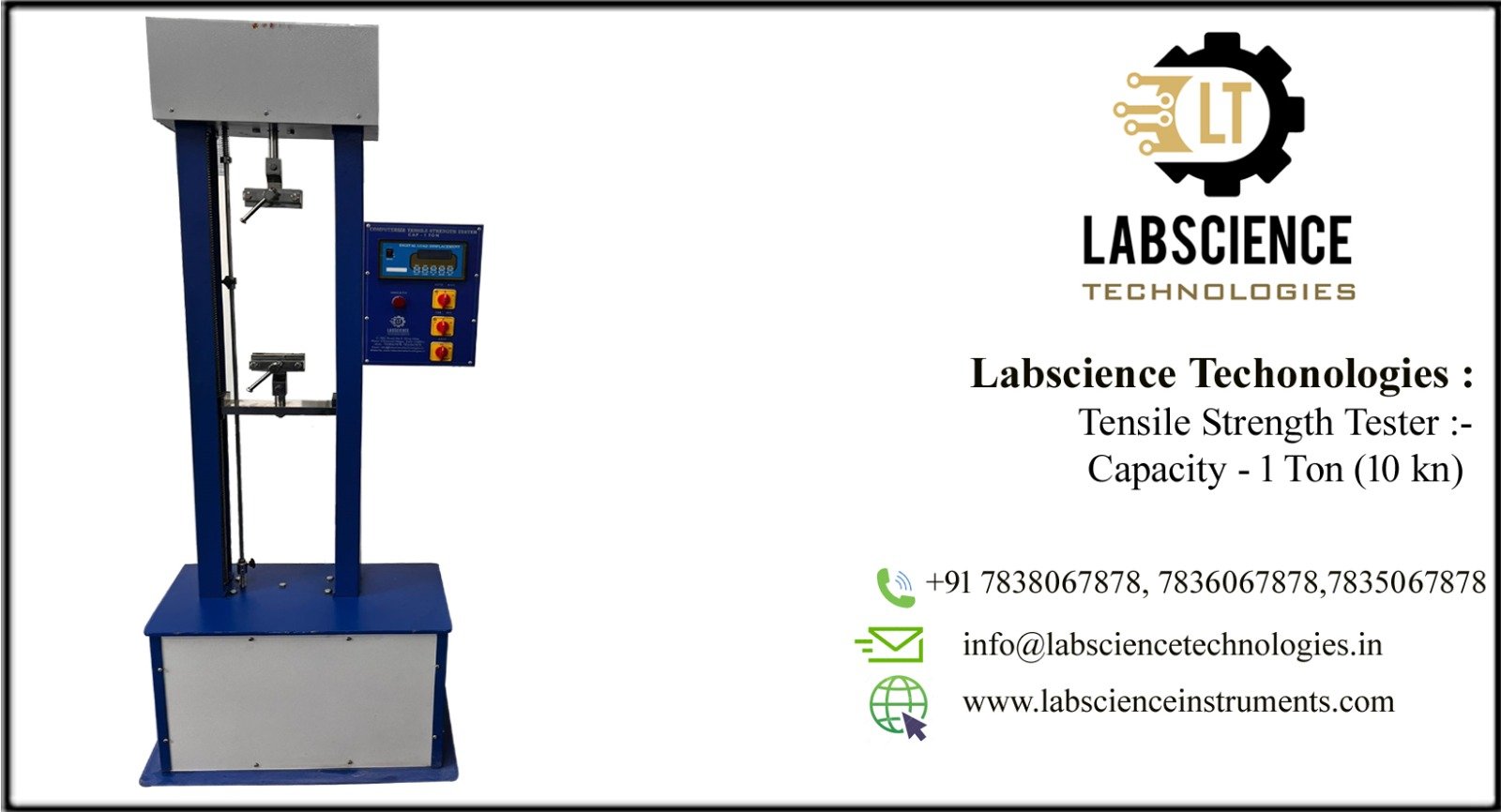Tensile
Introduction to Tensile Testing: A Vital Process in Material Testing
Tensile testing plays a pivotal role in understanding how materials perform under stress. It is widely used across different industries to measure the tensile strength and other mechanical properties of materials. This testing procedure involves the use of a tensile tester or tensile strength tester, essential tools for determining the durability and elasticity of materials.
What is a Tensile Tester?
A tensile tester is a machine used to test the tensile strength of materials. It applies a stretching force to a specimen and measures the force required to break it. This data is crucial for determining the material’s ability to withstand tension and its overall mechanical properties. Different materials such as metals, polymers, and textiles undergo tensile testing to ensure they meet the required standards for various applications.
Key Features of a Tensile Tester
- Precise Force Measurement: The tester can accurately measure the amount of force applied to the material during testing.
- Elongation Measurement: It also measures the amount of elongation a material undergoes before it breaks.
- Load Cells: Equipped with advanced load cells to determine the force at various points of the testing cycle.
Importance of a Tensile Strength Tester
The tensile strength tester is used to determine the maximum tensile stress a material can withstand before breaking. It is crucial for evaluating materials used in high-stress environments, such as construction, automotive, and aerospace industries. The data obtained from these tests helps engineers and manufacturers choose the right materials for their products.
Applications of a Tensile Strength Tester
- Construction: Ensures the materials used in building projects, such as steel and concrete, have the strength to support structural loads.
- Automotive: Tests materials used in vehicle parts, ensuring that components such as body panels and engine components can endure stress.
- Aerospace: Determines whether the materials used in aircraft can withstand high-stress conditions, ensuring safety and performance.
The Role of a Tensile Testing Machine in Material Science
A tensile testing machine is a critical tool in material science. This machine applies controlled tensile stress to a material sample and measures its response. By using a tensile testing apparatus, scientists and engineers can better understand how materials behave under stress and predict how they will perform in real-world applications.
How a Tensile Testing Machine Works
- Specimen Setup: The material sample is placed in the testing machine, typically with grips that hold it securely.
- Force Application: The machine applies a stretching force to the material at a consistent rate.
- Data Collection: The machine collects data on the material’s elongation, stress, and force. This data is then analyzed to determine the material’s tensile strength.
Understanding Tensile Stress and Its Significance
Tensile stress refers to the force per unit area exerted on a material during tensile testing. It is one of the most important factors in determining the suitability of a material for specific applications. High tensile stress indicates that a material can withstand large amounts of force before breaking.
Types of Tensile Stress
- Ultimate Tensile Stress (UTS): The maximum stress a material can withstand before failure.
- Yield Stress: The point at which a material begins to deform permanently under tensile stress.
- Fracture Stress: The stress at which the material ultimately fractures and breaks.
Material Tensile Strength: Key to Durability and Safety
The material tensile strength is a fundamental property that determines the material’s ability to resist breaking under tension. It is essential for ensuring that materials used in manufacturing products are durable and reliable. By testing the tensile strength of materials, manufacturers can ensure their products meet safety and performance standards.
Factors Affecting Material Tensile Strength
- Material Composition: The tensile strength of a material depends on its chemical structure and the elements it contains.
- Temperature: Extreme temperatures can alter a material’s tensile strength, making it important to test materials under various conditions.
- Processing Techniques: Heat treatments and other manufacturing processes can enhance the tensile strength of materials.
Tensile Load Testing: A Critical Quality Control Measure
Tensile load testing involves applying a tensile force to a material to assess its load-bearing capacity. This testing is essential in industries such as construction, automotive, and manufacturing, where materials must meet specific strength requirements. Tensile load testing ensures that materials will perform reliably under the stresses they encounter in everyday use.
Benefits of Tensile Load Testing
- Improved Material Selection: By understanding the tensile strength of different materials, engineers can select the best option for their specific needs.
- Quality Assurance: Ensures that the final product meets the strength standards required for safety and performance.
- Predicting Material Behavior: Helps engineers predict how a material will behave under stress in real-world conditions.
Conclusion: The Vital Role of Tensile Testing in Engineering and Manufacturing
Tensile testing is an indispensable tool in material science, providing critical insights into the strength and durability of materials. Whether it’s through a tensile tester, tensile strength tester, or tensile testing machine, these instruments help engineers and manufacturers ensure that the materials they use will perform reliably under stress. By understanding tensile stress, material tensile strength, and tensile load testing, industries can create safer and more durable products for a wide range of applications.
This content provides a thorough overview of tensile testing, highlighting the importance of various tensile test equipment, tensile strength testers, and the significance of tensile stress and material tensile strength in different industries.
Kindly fill this form to demand a call-back to from our client support boss with esteeming and details.
+91 7838067878
Call Now
+91 7838067878

